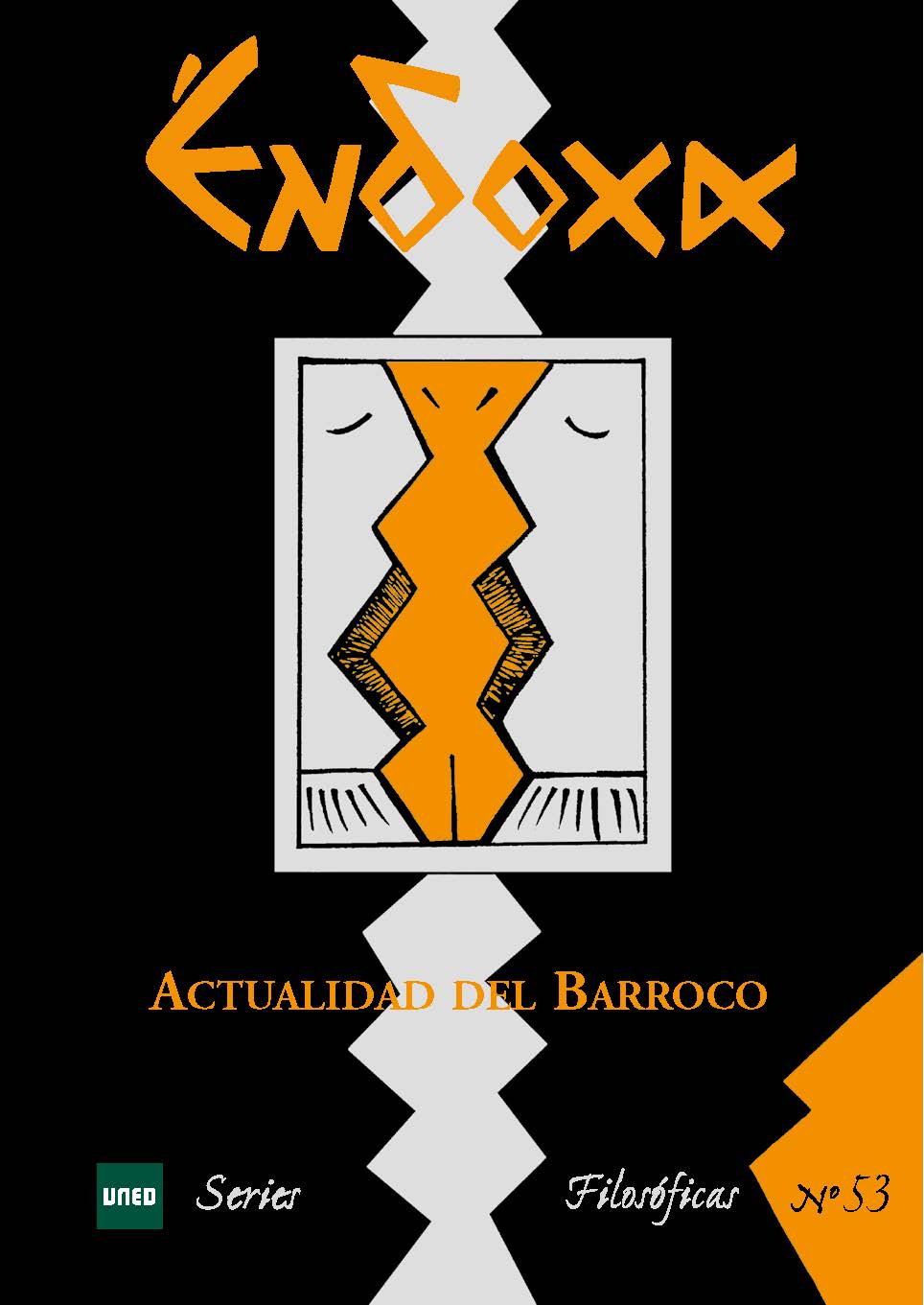UTOPIA AND IDEOLOGY IN FRANCISCO SUÁREZ'S DEFENCE OF THE RIGHTS OF PAGAN PEOPLES
DOI:
https://doi.org/10.5944/endoxa.53.2024.37744Keywords:
Francisco Suárez, human rights, colonialism, natural law, civil law, law of nationsAbstract
This paper analyses the utopian and ideological keys that run through Suaretian reflection on human right. Firstly, although the unity and immutability of natural law in Suárez is assured by the capacity of all humans to rationally reach its principles, the measure of this rationality is given by specific elements of European culture, considering as evident precepts that are only naturalised beliefs of a particular historical experience. Secondly, with respect to civil law, although it is true that Suárez accepts the possibility of political communities oriented towards the common good in an immanent way -that is, without the need to embrace Christianity-, he introduces a multitude of elements that limit this possibility. Thirdly, with respect to the law of nations, although it implies a limitation of the sovereignty of all communities, because of the mutual aid they require for their survival, its form is given by European imperialist forces. The paper concludes by asking to what extent these dynamics do not survive today in human rights and international law.
Downloads
References
ANGHIE, Antony (1996). “Francisco De Vitoria and the Colonial Origins of International Law. Social Legal Studies Vol. 5, pp. 321-336. DOI: 10.1177/096466399600500403
CEREZO, Pedro (2002). “El derecho de comunicación en Francisco de Vitoria”. Claves y figuras del pensamiento hispánico. Madrid: Escolar y Mayo, 125-142.
CORTINA, Adela (2004). “Los fundamentos relacionales del orden político”. Francisco Suárez: ‘Der ist der Mann.
Valencia: Facultad de Teología San Vicente Ferrer, Valencia, 89-104.
ESPOSITO, Costantino (2009). “Diritto naturale e diritti umani in Francisco Suárez”. Civiltà europea Vol. 2, pp. 49-79.
FONT, Pablo (2018). “La facticidad de la filosofía política de Francisco Suárez: un camino hacia otra Modernidad”. Pensamiento Vol. 74, pp. 179-200. https://doi.org/10.14422/pen.v74.i279.y2018.009
IBÁÑEZ, Eduardo (2018). “Francisco Suárez y los derechos humanos”. Pensamiento Vol. 74, pp. 221-235. https://doi.org/10.14422/pen.v74.i279.y2018.011
LACCA, Emanuele (2020). “Alcune considerazioni sulla guerra nel De Bello di Francisco Suárez”. Cuadernos Salmantinos de Filosofía Vol. 47, pp. 81-96.
https://revistas.upsa.es/index.php/cuadernossalmantinos/article/view/163
LÓPEZ, Manuel (2018). “La ley natural en Francisco Suárez: exaltación de la libertad”. Pensamiento Vol. 74, pp. 147-161.
https://doi.org/10.14422/pen.v74.i279.y2018.007
PRIETO, Leopoldo José (2017). “La noción de ley en Suárez y Locke”. Daimon Vol. 71, pp. 137-156.
https://doi.org/10.6018/daimon/237711
RIOFRÍO, Juan Carlos (2017). “La hiperinflación de los derechos fundamentales: consideraciones sobre sus límites, potencialidades y sobre su relativa indisponibilidad”. Revista de Direito Brasileira Vol. 18, pp. 49-62.
https://doi.org/10.5585/rdb.v18i7.764
ROSILLO, Alejandro (2010). “Presupuestos para recuperar la tradición hispanoamericana de derechos humanos”. Revista Crítica Jurídica Vol. 29, pp. 27-57.
https://criticajuridica.org/index.php/critica_juridica/article/view/574
SÁNCHEZ, Adolfo (2017). “Vitoria y Suárez: el derecho internacional en el tránsito a la modernidad”. Anales de la Cátedra Francisco Suárez Vol. 51, pp. 163-182.
https://doi.org/10.30827/acfs.v51i0.6252
SÁNCHEZ, David; SENENT, Juan Carlos (2013). Teoría crítica del derecho. Nuevos horizontes. México: Universidad Autónoma de San Luis Potosí.
SKINNER, Quintin (1986). Los fundamentos del pensamiento político moderno. II. La reforma. México: FCE.
SUÁREZ, Francisco (1970). Defensa de la fe. Madrid: Instituto de Estudios Políticos.
— (1971-2012). De Legibus. Madrid: CSIC.
SUÑER, Pedro (1971). “Teocentrismo en la ley natural”. Francisco Suárez. De Legibus, vol. III. Madrid: CSIC.
VITORIA, Francisco (2007). De Indis (trad. Luis Frayle. Sobre el poder civil. Sobre los indios. Sobre el derecho de guerra. Madrid: Tecnos.
Downloads
Published
How to Cite
Issue
Section
License

This work is licensed under a Creative Commons Attribution-NonCommercial-NoDerivatives 4.0 International License.
The authors who publish in this journal must agree to the following terms:
- The authors hold author’s rights and guarantee the journal the right to be the first to publish the work as well as the Creative Commons Attribution License which allows others to share the work as long as they acknowledge the authorship of the work and its initial publication in this journal.
- The authors can establish, on their own, additional agreements for the non-exclusive distribution of the version of the work published in the journal (for example, placing it in an institutional repository or publishing it in a book), always acknowledging the initial publication in this journal.
- The authors are allowed and encouraged to disseminate their work electronically (for example, in institutional repositories or on their own webpages) before and during the submission process, as this can give rise to productive exchanges, as well as earlier and increased citing of the works published (See The Effect of Open Access).








